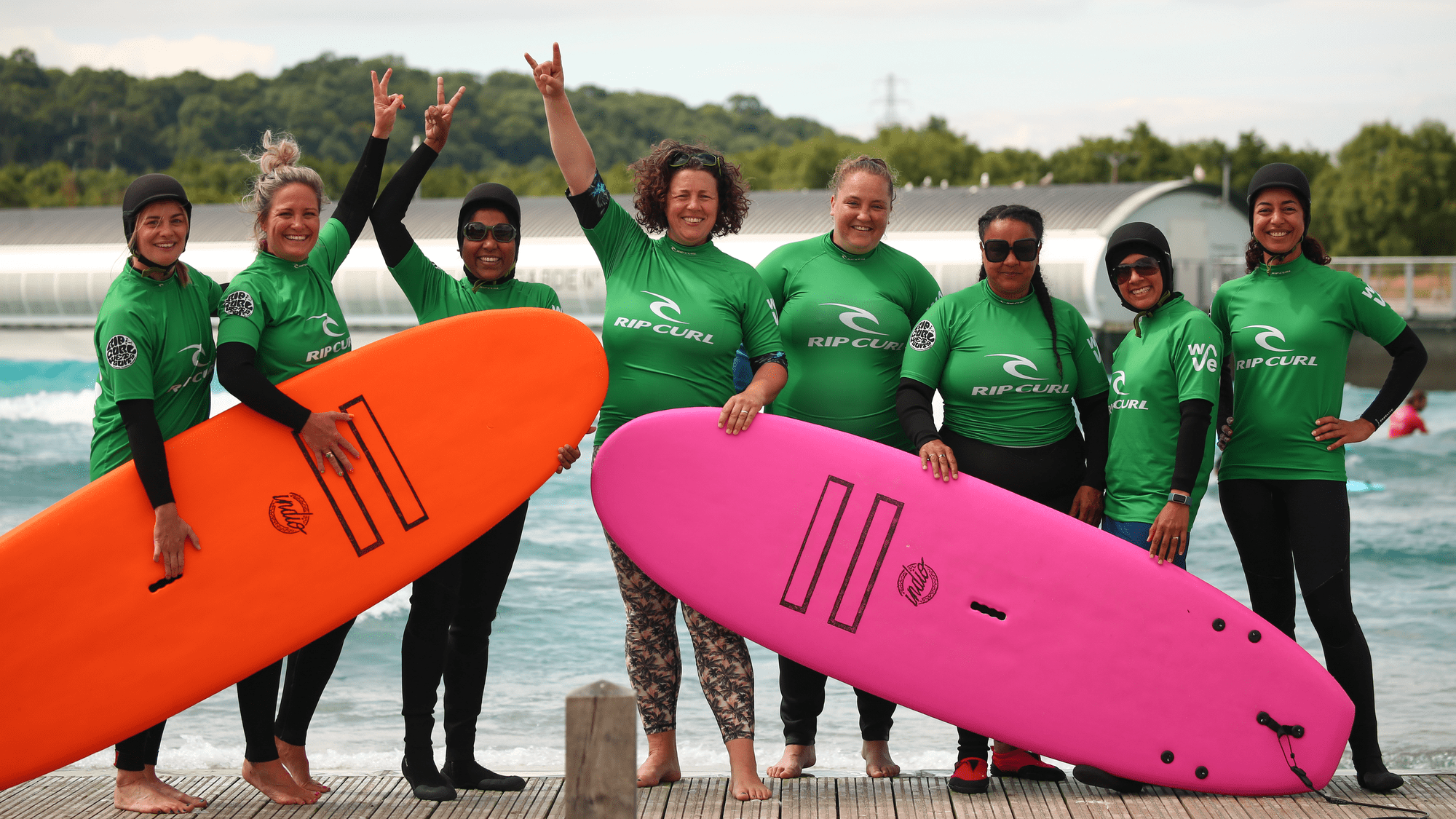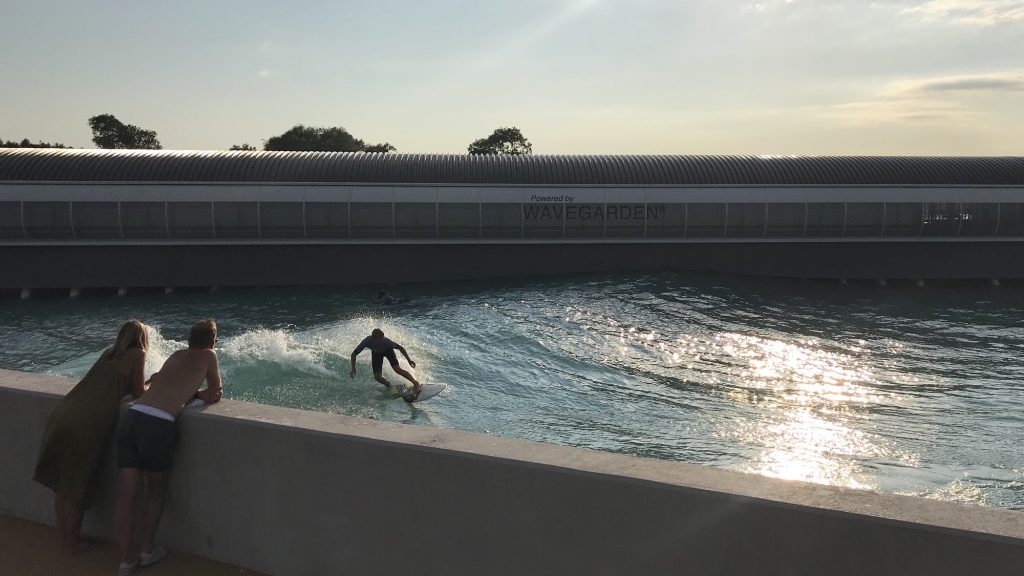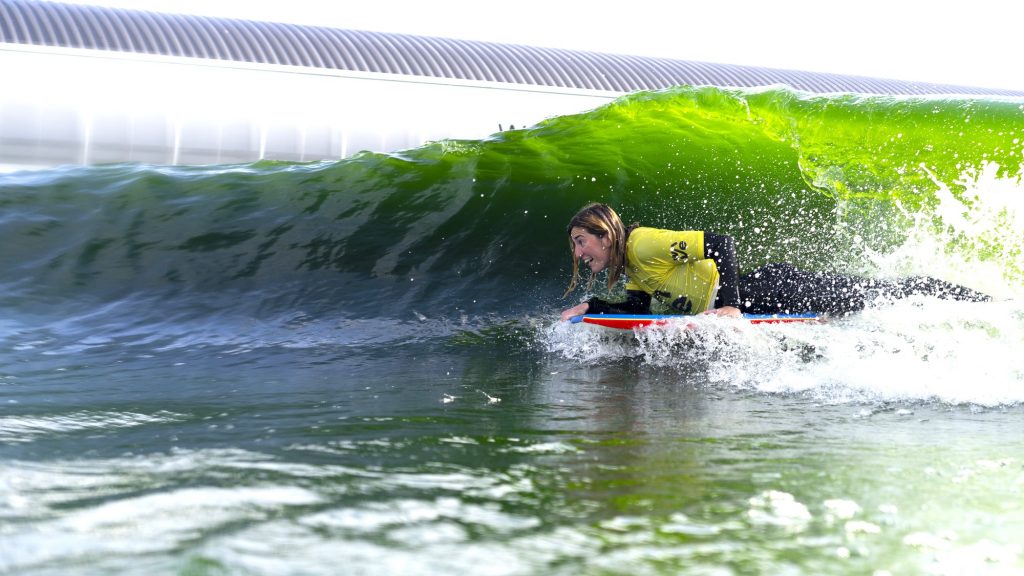It’s official: Surfing makes you happy

First of its kind research has been carried out at The Wave, by a University of Bristol student, Ariane Gerami, showing the mental health benefits of surfing.
Ariane’s research followed a group of women who took part in a six-week surf course, and found results that showed the women’s mental wellbeing significantly improved, including reduced anxiety, having more confidence, and feeling positive.
Ariane’s thesis has now been published in an international academic journal, and The Wave Bristol announced they have committed to supporting a three-year PhD study as part of new partnership.
“The power of water and waves to make us feel better is at the heart of why The Wave exists, and we’re excited to continue supporting Ariane’s work to scale up the findings,” The Wave said in a statement.
The research is the first of its kind to be carried out at an inland surfing facility.
Ariane Gerami created a unique ‘virtual surf booth’, which captured responses on video, to accurately assess the experiences of a group of women who took part in a six-week surf course at the ‘slice of the ocean’ on the outskirts of the city.

The novel research, which formed the thesis for Ariane’s Master’s degree in Nutrition, Physical Activity, and Public Health, went on to be published in an international academic journal
“Seeing this research project scale such amazing new heights is like a dream come true,” said Ariane. “Watching the participants smiling and growing in confidence with each surf session was a really rewarding experience and it was also a powerful illustration of what surfing can bring to mental wellbeing.
The research programme will explore the mental health impact of being in water and waves among larger groups of women and men.
The pilot study involved 15 women, who used an online tool to capture their experiences and feelings which generated scores in mental wellbeing at the start and end of the surfing course. VideoBooth Systems and Bristol-based organisations, ActiveBeing, AID Box Community, and Open Minds Active helped the project come to fruition.

Participants said the impact on mental wellbeing was clear. Many experienced a sense of achievement, a boost in self-esteem, confidence, happiness, connecting with the water, and more.
“Surfing left me feeling energised and upbeat,” said Sara Ahmed-Qureshi from Open Minds Active. “I found myself in a happier and positive mood, with more energy to do those boring mundane jobs. I also felt kinder and more loving towards others.”
The research findings add to a growing body of evidence highlighting the mental health benefits of activities in blue and green spaces. Surf therapy is increasingly used as a health intervention globally – with some courses, such as those offered by The Wave Project, being available via social prescribing.
“It is so important for us to support the growing body of research looking at blue health and particularly the positive mental health impact of surfing and blue spaces,” said Nick Hounsfield, Founder of The Wave. “These initial findings are exciting, and we can’t wait to work with the University of Bristol to enable even more extensive research in this area.”
Researchers are pointing to wave pools as a way to increase the accessibility of surfing, meaning the benefits of engagement with blue space can reach a wider range of population groups.
Related Coverage
